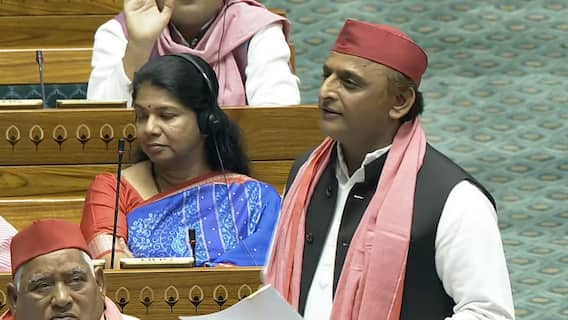SEBI Working On Instant Settlement Of Stock Market Transactions, Says Madhabi Puri Buch
Finance Minister Nirmala Sitharaman will inaugurate a Rs 33,000 crore debt backstop fund on Friday, said SEBI chief

SEBI Chairperson Madhabi Puri Buch on Monday said the capital markets regulator is working on instant transaction settlement in the stock markets. Buch said the day is not far off when stock market transactions will be settled instantaneously. She said the regulator is working with stakeholders to improve the timelines on transaction settlement towards this goal.
The Securities and Exchnage Board of India (SEBI) has been working on upping the pace of new equity issuances, debt issuances, approvals for mutual fund schemes using technology and other interventions with the aim of helping capital formation in the economy, she said. Such interventions have accrued in monetary benefits of Rs 3,500 crore for the investor community on an annual basis, she added.
The investment banker-turned-regulator said India is in a very good place as an economy which ups the importance of SEBI's role in aiding capital formation. The GST collection number show that the economy is doing extremely well and the advance tax payments by corporates are also a forward looking statement by corporates on their performances, she said. Highlighting the growth on both these fronts, Buch said the "growth of the economy is real".
She said that there will be a Rs 33,000 crore debt backstop fund. On Friday, Finance Minister Nirmala Sitharaman will inaugurate that.
During a press meet, Buch clarifies on mechanism to implement regulations. "The current arrangement (in regulations) will continue, if standards can be improved, we will welcome it (suggestions)," Buch said, while adding that there is anew mechanism to implement regulation, and not a mechanism for deferment of regulations.
Earlier during the press conference, the SEBI chief had talked about a new regulatory design. "Essentially, this new element in the regulatory design is as follows: We have seen over the last many months that as we bring out various regulations or modify various regulations, we find that at a policy level we have a lot of valuable inputs that comes to us from advisory committees and public consultation. We get a lot of input, we take that and create our regulation, then public consultation and we approve it."
"However when they are implemented, we find that two things happen. One is that a lot of queries come to us on how are these supposed to be implemented...andwill this be adequatelycompliantetc. First we tried to explain this through FAQs and more detailed circulars. On deeper reflection, we came to the conclusion that what we are dealing with is standard setting for implementation... this is not the regulation but about implement. This task is done by industry bodies themselves," she added.
"Now our regulations will take us to a certain stage of expressing regulatory intent and what is to be done, but a lot of ease of doing business lies in the details of how to implement," she further noted.
Top Headlines
Trending News






































